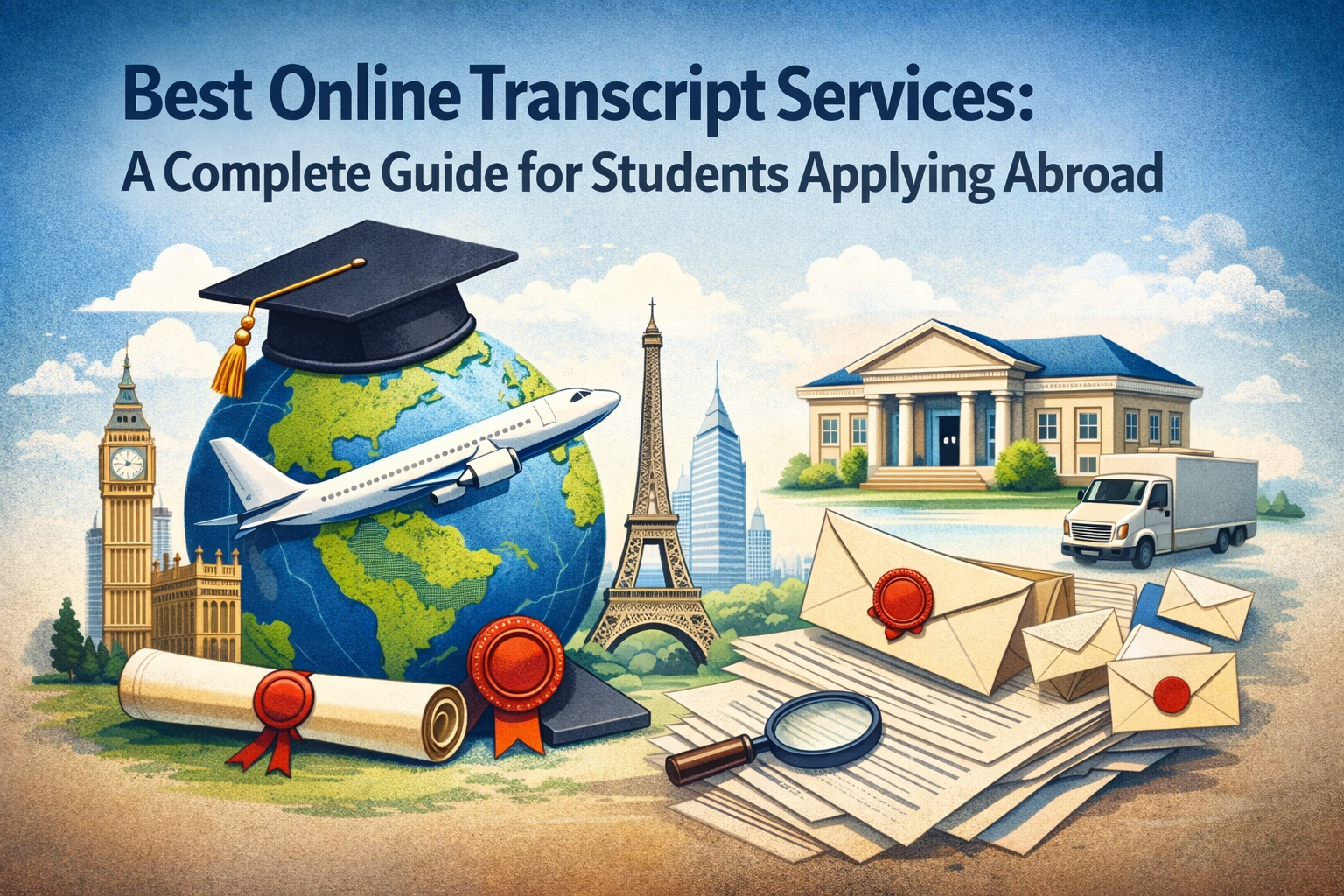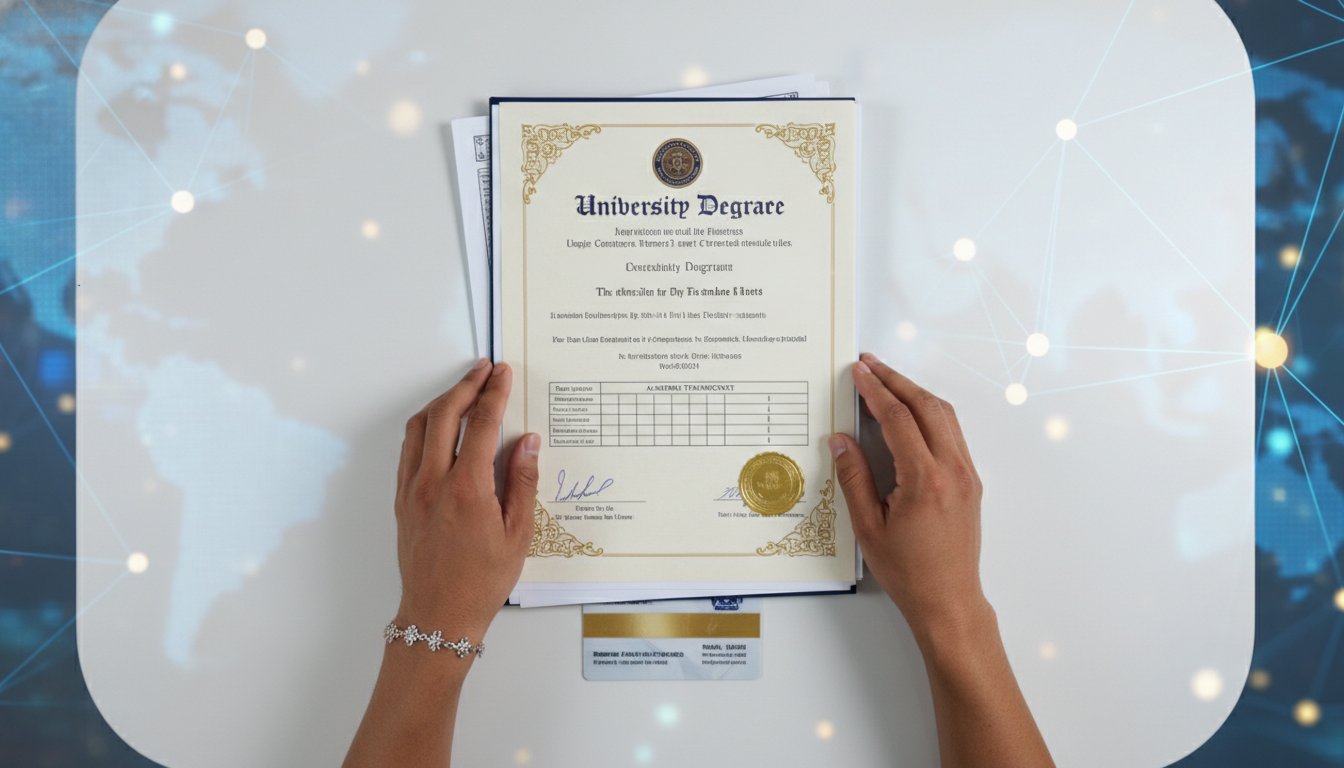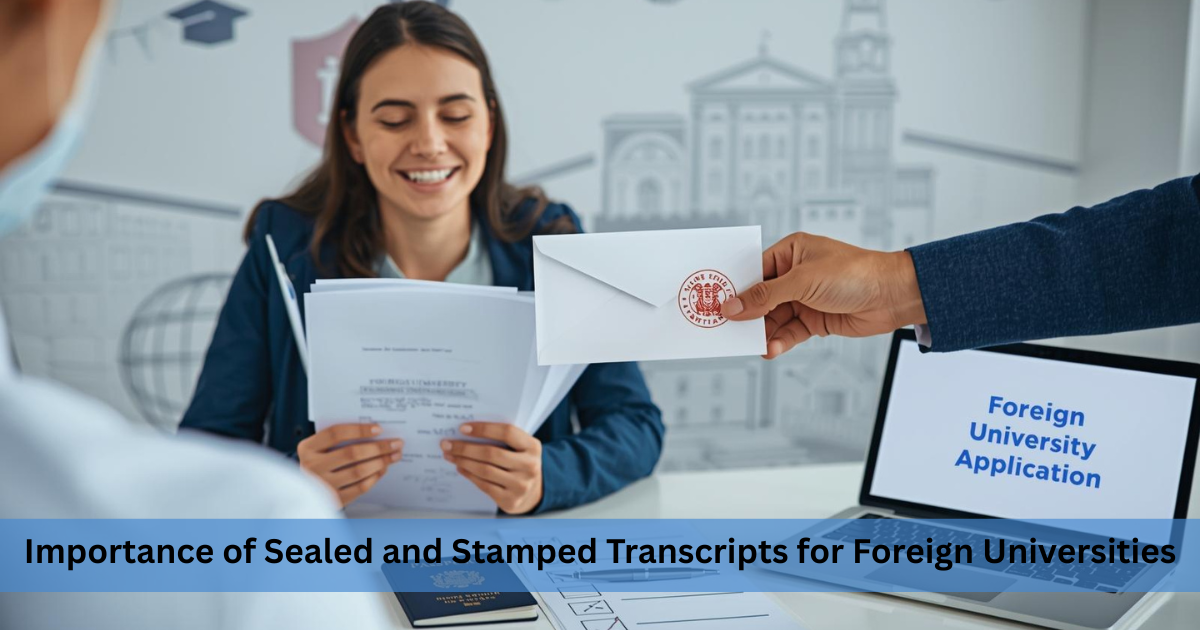Introduction: The Importance of Education Verification in India
Getting your educational credentials verified in India is a big step towards grabbing opportunities abroad. It’s crucial. Why? Because it proves you’re the real deal. Without this stamp of approval, your dream job or university overseas might just remain a dream. But here’s the thing—it’s not just a formality. It’s about building trust. When an employer or an educational institution in, let’s say, the US, Canada, or Australia sees that your credentials have been verified in India, they know you’re legit. This process, although it might sound like a headache, is your ticket to making big moves internationally. Remember, it’s not just about showing you have the degree or the marks; it’s about showing you’ve played by the rules, and everything you’re presenting can be backed up. And let’s be real, in today’s world where trust is hard to come by, having your education verification is like wearing a badge of honor.
Need help with your Academic Transcript? Contact Us Now!
Understanding the Challenges of Education Verification in India
Validating your education credentials in India for opportunities abroad isn’t straightforward. One major roadblock? The lack of a centralized system. India’s vast and diverse educational sector means each institute might follow its own process. That’s a headache when you need to prove your qualifications. Another stumbling block is the different grading systems and educational philosophies across states. What does a first-class degree from one university translate to internationally? Not always clear. Then, there’s the time factor. Verification can take weeks, sometimes months, in a process bogged down by bureaucracy and slow response times. This extended timeline can be frustrating when you’re racing against application deadlines or job offers. Lastly, the risk of encountering fraudulent institutions or falsified documents complicates the scene further. So, navigating education verification in India demands patience, meticulousness, and often, a knack for cutting through red tape.
The Role of Education Verification in Securing Overseas Opportunities
When aiming for overseas opportunities, education verification plays a crucial role. It’s like a key that unlocks those international doors for you. Employers or institutions abroad want to make sure the qualifications you hold are legit. Think of it as their way of checking if you truly know your stuff and if your educational background fits their standards. This process isn’t just a formality; it’s a vital step to ensure that candidates are qualified and genuine. Without a verified education, it’s tough to gain trust and even tougher to secure that dream job or admission to a prestigious institution abroad. Essentially, it acts as a stamp of approval on your academic achievements, making it easier for opportunities to find their way to you.
Read more: The Importance of Educational Credential Evaluation in Academic and Professional Success
Different Types of Education Verification in India
In India, navigating through education verification can feel like a maze, especially when you’re eyeing overseas opportunities. Mainly, there are three routes to verify your academic records: from universities directly, through government portals, and via private verification agencies. Universities themselves are a primary source. They offer detailed transcripts and degree verification directly to the concerned parties or through their channels. It’s straightforward but sometimes slow. Government portals, like the National Academic Depository (NAD), make life easier by providing an online repository of academic awards. It’s a secure and faster way to verify your education, handy for both students and overseas institutions or employers. Lastly, private verification agencies step in where direct university or government services lag. They speed up the process, ensuring quick and reliable verification, often for a fee. Each of these paths serves the same goal – proving your academic credentials are legit. Your choice might hinge on how fast you need it and what the overseas party prefers.
Step by Step Process of Education Verification for Overseas Jobs
Getting your education verified is a must if you’re eyeing a job overseas. The process might feel daunting, but breaking it down into steps makes it manageable. First, start by contacting the educational institution you graduated from. Request an official transcript or degree certificate. Sometimes, an authorization letter might be needed, so keep that ready. Next, head to the HRD (Human Resource Development) department. They’re the folks who’ll attest your documents, stating they’re legit. This step is crucial because it stamps your qualifications with authenticity. Third, once the HRD gives the green light, the Ministry of External Affairs (MEA) is your next stop. They offer another layer of authentication. Finally, you might need to go one step further by getting your documents verified by the embassy of the country you’re targeting for work. This last step ensures that your credentials are recognized internationally. Remember, get started early. Each of these steps takes time, and delays are common. Be patient but persistent. It’s your ticket to that dream job abroad.
Legal and Documentation Issues in Education Verification
Navigating the maze of legal and documentation issues is a common headache when it comes to verifying your educational credentials in India for use abroad. First off, each country has its own set of rules on what they need. You might be asked for notarized copies, a credentials evaluation, or both. The real kicker? Not all Indian universities are keen or quick on issuing the documents needed. There’s often a tug-of-war between needing detailed transcripts and what your university is willing to provide.
Here’s where it gets more tangled. If you’re heading to a country that requires the Apostille Convention (a form of international verification), you’ll need your documents apostilled. That’s another loop of bureaucracy because it involves getting your documents verified by multiple government bodies in India before they even leave the country.
And let’s not forget the time factor. This isn’t a tomorrow deal. Getting all ducks in a row can take anywhere from a few weeks to several months. So, plan ahead, and maybe, just maybe, start gathering your papers way before you even need to. In short, patience isn’t just a virtue; it’s a necessity when dealing with the legal and documentation circus of education verification for heading overseas.
Tips on Streamlining Education Verification in India
Streamlining education verification in India requires a proactive approach. Start early, as verification can take longer than expected. Contact your university’s registrar office to request transcripts and related documents. Make sure you have all necessary paperwork in order, including mark sheets and degree certificates. Also, consider using third-party verification services that specialize in education checks. They can speed up the process, though at a cost. Keep digital copies of your documents for quick submissions. Lastly, stay informed about the specific requirements of the overseas opportunity you’re aiming for. Different institutions or countries may have unique documentation needs. Following these steps can ease the path to verifying your Indian educational credentials for global opportunities.
How Technology is Changing the Landscape of Education Verification
In the old days, verifying someone’s education in India for opportunities abroad was like trying to solve a complicated puzzle. It took a lot of time and often involved sifting through piles of paperwork or waiting for snail mail to deliver the necessary documents. But, times are changing, and technology is now leading the charge, making the whole process quicker and more accurate.
First off, digital databases have become a game-changer. Universities and educational institutions are uploading student records online, making it easier to access and verify them. This means no more waiting for weeks on end; a few clicks and you’ve got what you need.
Then there’s the role of blockchain technology, which is all about security and transparency. By storing records on a blockchain, it makes them almost impossible to tamper with. This is great news for employers and educational institutions abroad, ensuring the credentials they’re reviewing are the real deal.
Artificial intelligence (AI) is also stepping into the ring. AI can sift through data at lightning speed, helping to catch any discrepancies or falsifications in academic records. Think of it as having a super-smart detective on your team, one that works 24⁄7.
Lastly, verification services have sprouted up, leveraging all these tech advancements. These services liaise between schools and those requesting verification, smoothing out the process. They’re like the helpful middleman, ensuring everything checks out without a hitch.
So, the scene is shifting. Thanks to technology, verifying education in India for opportunities abroad is becoming less of a headache and more of a streamlined process. The landscape of education verification is certainly looking a lot brighter.
Read more: Top Benefits of Using Electronic Transcripts for Your Educational Needs
Success Stories: Overcoming Hurdles in Education Verification
Many have walked the tightrope of education verification in India and come out successful on the other side, landing their dream jobs or securing admissions in prestigious universities overseas. These success stories often start with candidates facing a common set of problems like slow response from universities, documentation mishaps, or stringent verification processes. Yet, they turned these challenges into stepping stones. One way they did this was by starting the process early, giving themselves ample time to navigate unexpected delays. They stayed in constant communication with both the educational institutions in India and the overseas entities requiring the verification, ensuring all parties were always on the same page. Some found success by leveraging third-party verification agencies, which streamlined the entire process, making it less daunting. A key takeaway from these stories is the importance of persistence and clear communication. These individuals didn’t let setbacks deter their efforts; instead, they adapted their approach, sought help when needed, and kept their eyes on the prize. Their journeys prove that, despite the hurdles education verification in India might present, with the right approach and a bit of perseverance, overcoming them is not just possible but likely.
Conclusion: The Path Forward in Education Verification in India
The path to verifying education in India for overseas opportunities has its hurdles, but it’s far from impossible. Moving forward, it’s clear that technology will play a significant role in streamlining the verification process. Digital platforms are making it easier to access academic records directly from universities, cutting down on fraud and speeding up the process. Additionally, the Indian government’s push towards digital initiatives in education signals a future where data is more accessible and verifiable. For individuals looking to study or work abroad, starting the verification process early and ensuring all documents are in order is crucial. Patience and persistence are key. Remember, the effort to get your qualifications recognized internationally not only paves the way for your future but also contributes to the global credibility of Indian education. Keep pushing forward, stay informed, and leverage technology to your advantage.
















 Call Us
Call Us Mail Us
Mail Us WhatsApp
WhatsApp
